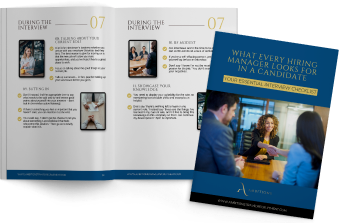Paying Above Benchmark Salaries: Strategy for Attracting Top Talents in the Travel Industry

Recruiting in the travel industry has never been more challenging, especially in today's highly competitive job market. Simply offering industry-standard salaries is no longer sufficient to entice the most qualified candidates to join your team. The task of hiring and retaining team members in the face of an economic crisis, rising inflation rates, and an increasing cost of living is undeniably demanding, and it may impact your profits. The question you must consider is, can you afford not to address these challenges? As sticking to yesterday's practices won't propel any business forward, it’s important to have a dynamic talent strategy in the travel industry.
A Real-Life Example
Recently, we became aware of a prominent brand in the travel industry that experienced a significant talent exodus to a competitor. These destination experts, who were highly sought after, were all passive candidates and actively recruited by travel industry specialists. So, what strategy did the competitor employ to attract them in the current climate?
The competitor acknowledged that in this market, elevating the base salary was crucial, but they didn't stop there. They recognised the necessity of providing a more adaptable working environment, understanding that repeating past practices without evolution would not lead to success. This adaptability extended to their approach to salaries, incentives, benefits, and their overall talent acquisition and employee retention strategy.
Salary Comparison
While benchmarking salaries remains a standard practice, it represents just the beginning. In a fiercely competitive job market, you may find it necessary to offer higher salaries to attract the top talent. This increased compensation is an integral part of what should be considered as the cost of acquiring talent.
The Impact of Competitive Compensation
In a job market where candidates hold the upper hand, a well-structured salary package can make your organisation more attractive to top-tier professionals. Although this initial investment may appear substantial, this can yield significant returns in terms of employee retention and productivity.
The Value of Passive Candidates
In this competitive job market, passive candidates are a valuable resource often overlooked by job postings. These individuals are not actively seeking new opportunities but may consider a change if presented with the right offer. They frequently bring a wealth of experience and stability to your organisation. To attract them, you must have a solid talent strategy in the travel industry. For example, you can build a compelling case for why your company is the ideal choice, which includes offering competitive compensation and fostering a strong company culture.
The Role of Travel Industry Recruitment Specialists
Navigating the intricacies of the travel industry's highly competitive job market demands expertise. Utilising the services of travel industry recruitment specialists, such as our team at Ambitions Travel Recruitment, should not be viewed as an excessive cost. Rather, it should be considered an investment in securing top talent. These experts understand the nuances of the industry, can provide insights into establishing competitive salaries, and offer guidance on how to attract the best candidates. Their knowledge can save you time and resources while enabling you to make well-informed decisions to achieve your recruitment objectives.
Remember that enlisting the assistance of travel industry recruitment experts is an investment that can provide invaluable guidance in attracting and acquiring top talent. By combining these strategies and seeking expert advice, your business can thrive in the ever-changing landscape of the travel industry.




